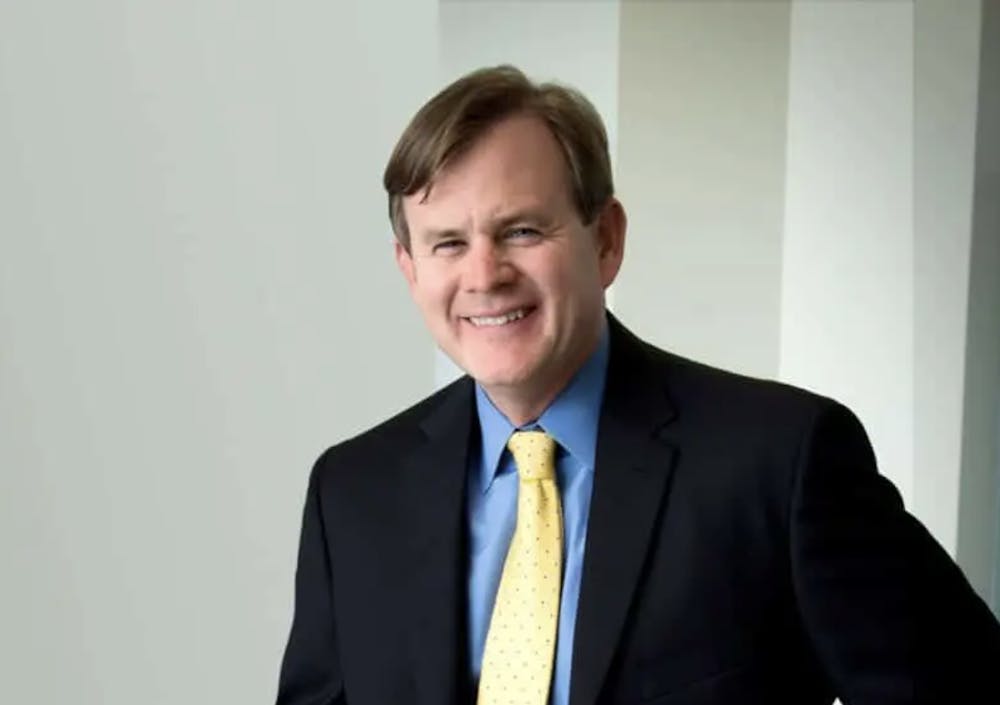James Scott Farrin, Law School ’90, has established a new fellowship that allows recent Duke Law graduates to pursue legal work in the field of public interest for a year.
The $500,000 gift includes health insurance, salary and benefits and must be applied at a 501(c)(3) organization serving the public good.
Kerry Abrams, James B. Duke and Benjamin N. Duke dean of the School of Law, noted that the Law School continues to invest in opportunities in public interest law for law students, building upon its existing strength in the field.
“The Farrin Fellowship will help one of those students start out with work they are passionate about, perhaps creating a completely new project or bringing a new type of service to an area, or perhaps just by expanding services to an underserved community,” Abrams wrote in an email to The Chronicle.
Farrin leads the Law Offices of James Scott Farrin, where he focuses on personal injury, worker’s compensation, medical malpractice, class action and other categories of litigation. He started his career at a major law firm advising Fortune 500 companies, but after a few years, Farrin “started shifting gears and working directly with consumers and people who had day to day legal problems.”
“I saw the world from their perspective and totally changed my politics and my view of what their needs are and what societies in the legal system solutions should be,” Farrin said.
This experience served as the foundation for his career in public interest law. A major career event during his work as a public interest lawyer was the In re Black Farmers Discrimination Litigation court case, in which Black farmers sued the United States government, arguing that they had been denied funding and opportunities over decades of discriminatory behavior.
“It was very upsetting to see how our federal government had mistreated them … to hear these stories of these farmers who had just been so differently treated than their white peers in terms of access to credit, and then it was more than that. It was also oftentimes humiliation and so on,” Farrin said.
Farrin’s law firm took the case, both because of its national significance and because of the enormous positive impact it could have on the lives of Black farmers. Similarly, he hopes that “the impact of this fellowship would be to help people who have been historically marginalized or disadvantaged.”
Farrin’s firm has multiple locations in North Carolina, including in Durham. When he moved from California to Durham to start his practice, he was able to be closer to the professors and resources he knew from his time at Duke Law.
Farrin said that “Duke Law faculty were really helpful to [him] in assembling the team and deciding what to do” in terms of legal strategy, citing appreciation for Professor of Law Paul Haagen and Len Simon, Law School ‘73 and former senior lecturing fellow.
“[It’s] kind of the reason I started stepping up my contributions to [the Law School]. It was out of a sense of gratitude for a lot of law professors and the alumni network helping me in that case,” Farrin said.
Farrin had previously funded an eviction clinic at the Law School, but after the funding period ended, he decided to look for a new area he could support.
“We were looking for a way to continue to stay involved with Duke and make an even greater impact,” Farrin said. “[My law partners, my wife and I] thought that doing this gift would serve a couple of purposes: one, it would help Duke Law students, which is beneficial; but secondly, it would help the community of people who need representation and otherwise could not afford it.”
Abrams pointed out that nonprofits that serve the public good are often underfunded and understaffed, which can make it difficult for young law students to enter the field.
“A fellowship like this can really launch a graduate into their career, enable them to get really valuable experience and help them meet others doing important work,” Abrams said. “Our hope is that it will help the graduates who receive this fellowship stay in their chosen public interest field and become leaders.”
Get The Chronicle straight to your inbox
Sign up for our weekly newsletter. Cancel at any time.

